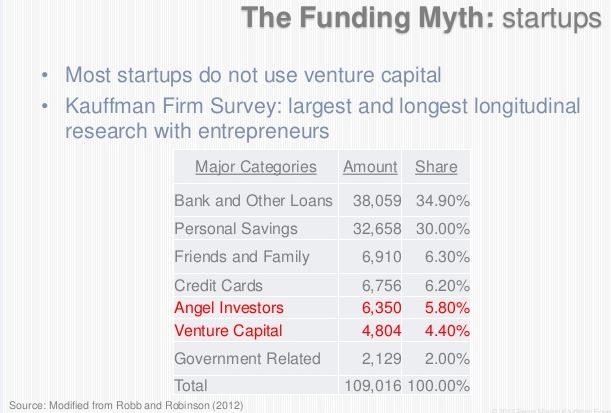Angel investing has reached a new level of interest by the general public because start-ups are doing well and there are new ways to be an angel (AngelList, crowdfunding, etc.). The New York Times recently published an article about the pros and cons of angel investing for entrepreneurs and investors. In the late 1990’s dot-com era, I did some angel investing and quickly learned its shortcomings both for the entrepreneur and for the investor. Yet, that does not mean that angel investing isn’t perfect for some situations.
The New York Times recently published an article about the pros and cons of angel investing for entrepreneurs and investors. In the late 1990’s dot-com era, I did some angel investing and quickly learned its shortcomings both for the entrepreneur and for the investor. Yet, that does not mean that angel investing isn’t perfect for some situations.
The bottom-line, for me, is that there is no one best source for early-stage capital. I recommend putting in the hard work and the time to find the investors who are best aligned with your goals and your needs. It could be your own 401k, or friends and family, or a bank loan. Or, the best of all – existing and potential customers! I wrote an earlier blog post about customer financing.
90% researching, 10% pitching
In fact, 90% of your time and work should be spent thinking about, locating, and researching the best sources of capital given your objectives. If you do that, only 10% of your time will actually be pitching and closing the financing.
Now, a few things to keep in mind with raising capital:
- Venture Capital is a very small percentage of the early stage financing. Unless you are ex-(pick a successful Silicon Valley company) and have an idea where it is obvious how it will reach $100 million in revenue within 5 years, do not waste your time. In a large study by the Kauffman Foundation, they found that only 4.4% of startups utilized venture capital (see chart nearby).
- Angels are also a small percentage of financing (only 5.8% of startup financing), and they come with some baggage. The New York Times writes about how angels subject the entrepreneur to dozens of opinions, and there is no one person to step-up and contribute real effort and time when things are not going as well as expected.
Angel results not predictable, most unexpected
If you are an investor type anxious to participate in the productivity boom represented by Silicon Valley type start-ups, I would think twice. If Peter Thiel is your best friend, then go for it. If not, you probably do not know the right people to get access to the best deals.
Fortune magazine’s Dan Primack wrote about angel investing that “just because it is legal does not mean it is good for you” in this column titled “We’re all investors, but we’re no angels.” I have a friend who has invested as an angel in over 70 companies who said it was the most unexpected ones that made the best return while most turned into “zeroes” – angel parlance for a total loss. In my opinion, the large portfolio strategy is the way to do angel investing if you must. The reason is that angel investing is nothing more than gambling and you need a large portfolio to make sure that you hit some winners.
Posts Related to Angel Investing:
- Best Business Financing: Its Customers
- Raising Capital: About Fit and Timing
- We’re In a Seed Stage Boom



 I am an investor at Greybull Stewardship, an
I am an investor at Greybull Stewardship, an 
 Sign Up
Sign Up RSS Feed
RSS Feed